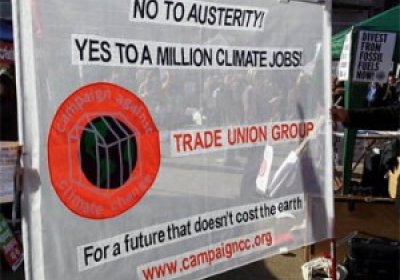My name is Stephanie O’Donnell, but I also go by “the girl from the plane”.
On December 19, my partner and I were at Sydney Airport on our way to Heathrow via Beijing. We had booked the cheapest flight available and were waiting to check in for flight CA174, when a plucky activist approached us.
Democracy
Protests against the forced closure of Aboriginal communities in Western Australia were held across Australia on March 19.
US bars UN torture investigator from jails and Guantanamo
The United Nations special investigator on the use of torture criticised the US on March 11 for stalling for over two years in granting the international human rights body access to inmates at Guantanamo Bay and other federal US prisons.
Experience proves that left-wing movements can win government, but nevertheless not hold power. Democracy, in other words the exercise of power by the people and for the people, requires much more.
The problem is now being faced in Greece with with radical left party SYRIZA, which won elections in January. It will have to be faced in Spain if the new anti-austerity party Podemos wins November elections.
The following statement was released by Aid/Watch, an independent monitor of international aid and trade, on March 5.
* * *
Australia spends $577 million a year on aid for Papua New Guinea (PNG). Two key focus areas are anti-corruption related — law and justice, and governance.
PNG has concurrently undertaken a number of national processes to combat corruption without Australian support.
Some 20,000 people marched through central London on Saturday, in the Time to Act! protest, demanding that climate change be taken seriously by political parties in the coming General Election.
Time to Act!, launched by the Campaign Against Climate Change, brought together a wide coalition of environmental and left wing organisations.
The march was young, vibrant and diverse: placards from the Greens, Socialist Worker and Left Unity mixed with banners and flags from Friends of the Earth, Greenpeace, the Peoples’ Assembly and trade unions.
US hemispheric policy reached a new low on March 9 when President Barack Obama invoked emergency powers to declare “a national emergency with respect to the unusual and extraordinary threat to the national security and foreign policy of the United States posed by the situation in Venezuela.”
Thanks to Obama’s action, the US has now blatantly rehabilitated its traditional imperial posture towards the South and challenged the continent-wide Bolivarian cause of Latin American and Caribbean independence and sovereignty.
The recent 70th anniversary of the liberation of Auschwitz was a reminder of the great crime of fascism, whose Nazi iconography is embedded in our consciousness.
Fascism is preserved as history, as flickering footage of goose-stepping blackshirts, their criminality terrible and clear. Yet in the same liberal societies, whose war-making elites urge us never to forget, the accelerating danger of a modern kind of fascism is suppressed; for it is their fascism.
A largely unknown region to the rest of the world became one of the most talked about globally in recent months.
Kobane is a town that suffered a too-harsh fate. Innocent civilians never think that one day they would face massacres — except that being a Kurd in a town like Kobane (in a largely Kurdish area in the north-west of the Syrian state), means you face such things.
Refugees on Nauru have defied government and police attempts to ban protesting, as the United Nations adds to the growing body of evidence that Australia's asylum policy is violating human rights.
The Refugee Action Coalition (RAC) said 300 refugees held a peaceful protest on March 11, “just one week after Nauruan police staged mass arrests on the island in a bid to stifle the campaign of non-cooperation being waged by the refugees”.
In response to US President Barack Obama’s use of an executive order to sanction Venezuelan authorities, Venezuelan President Nicolas Maduro requested decree powers to pass an “anti-imperialist law to prepare for all scenarios”. On March 11, a majority of Venezuela's National Assembly voted in favour. The bill, which must be approved by 60% of the Assembly according to Venezuela’s constitution, will now move on to a second reading to obtain final approval.
What does the victory of radical left party SYRIZA in Greece's January 25 elections mean for politics in Europe, at Europe-wide and national levels? Both levels are closely intertwined, and since SYRIZA’s win have been having rapid feedback effects on each another.
Across Europe, the reverberations of SYRIZA’s win are being felt with rising force, both in “peripheral” Europe, but also in the German-led European Union “core”.
- Previous page
- Page 316
- Next page









